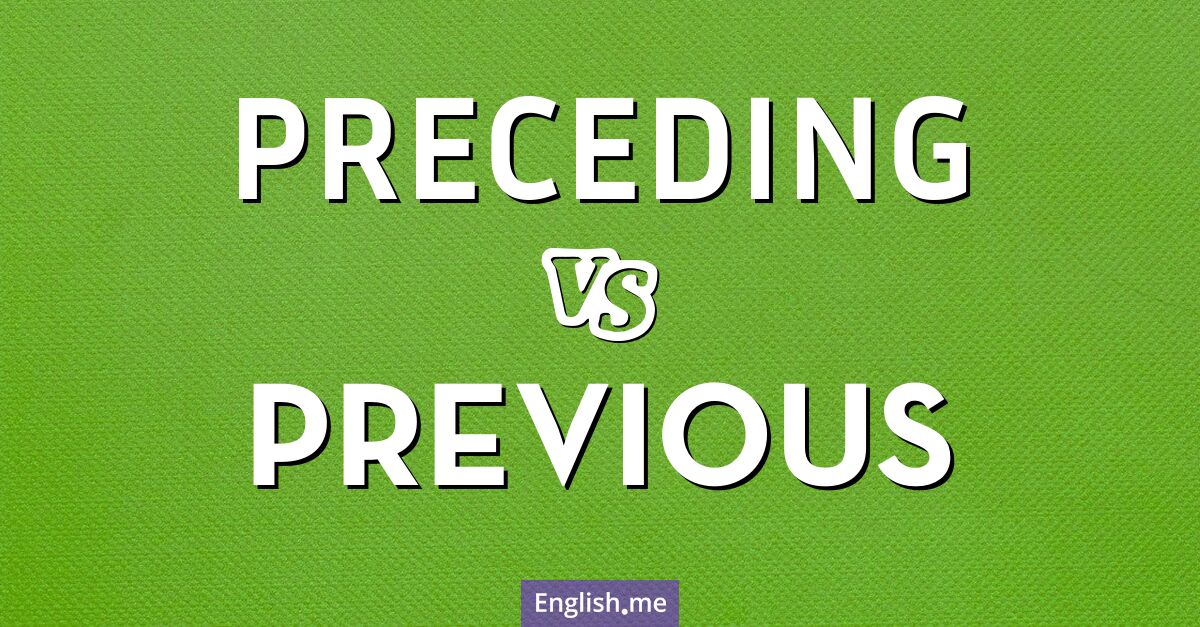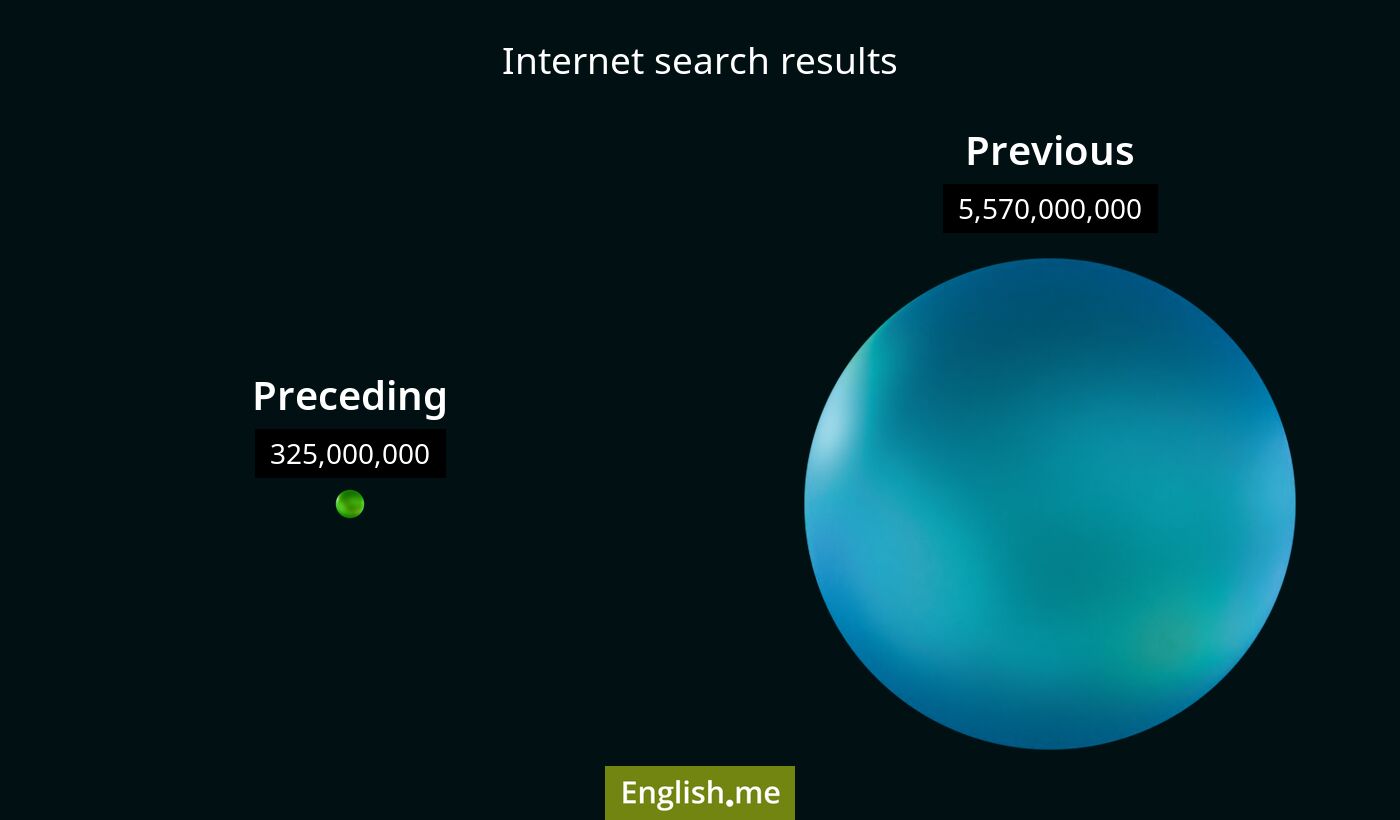"Preceding" vs. "previous": a battle of the past
Reviewed and edited by  Lloyd Cooper 14/10/2024, 07:12
Lloyd Cooper 14/10/2024, 07:12
English.me team member

 What is similar?
What is similar?
Both "preceding" and "previous" refer to something that comes before something else in time or order. They are often used interchangeably in contexts where events or items are being discussed in sequence.
 What is different?
What is different?
The word "preceding" often emphasizes the immediate proximity of the item or event before another, while "previous" can be used more generally to refer to any item or event that came before, not necessarily the one immediately before. Additionally, "preceding" is more formal and is often used in institutional or academic contexts.
 Which one is more common?
Which one is more common?

 Examples of usage
Examples of usage
Preceding- The preceding chapter discusses the historical context in detail.
- In the graph, the preceding data point shows a significant increase.
- She referenced the preceding paragraph to support her argument.
- He learned from his mistakes in the previous job.
- The previous owner of the house left it in excellent condition.
- Our previous meeting was much more productive than this one.

 English
English español
español française
française italiano
italiano deutsche
deutsche 日本語
日本語 polski
polski česky
česky svenska
svenska Türkçe
Türkçe Nederlands
Nederlands